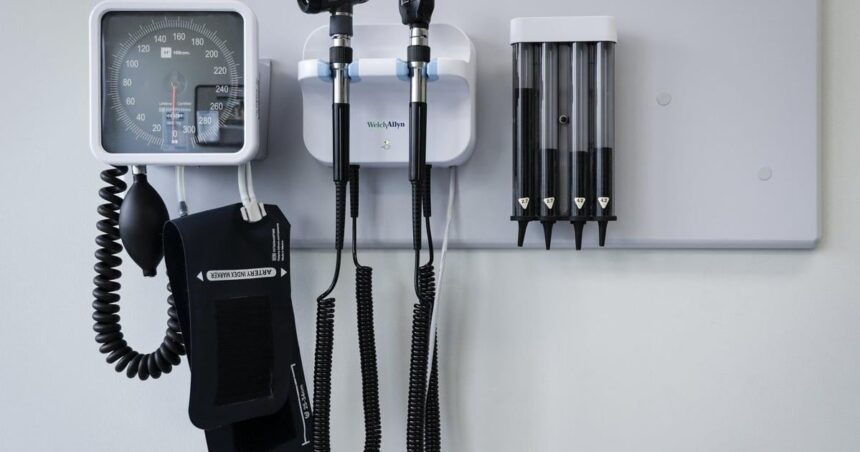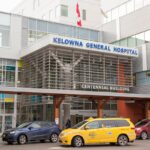Standing in the hushed hallway of Red Deer Regional Hospital, Dr. Neeja Bakshi’s voice drops to a near-whisper. “Last week, I had to tell three seniors they would need to pay for their COVID boosters. The look of confusion on their faces—it was heartbreaking.”
This scene has become increasingly common across Alberta following Premier Danielle Smith’s announcement that beginning November 1, most Albertans will need to pay for COVID-19 vaccines, with free shots limited to those over 65 or with specific medical vulnerabilities.
The policy shift marks Alberta as the first province to remove universal access to COVID vaccines, a decision that has sparked fierce debate among healthcare professionals, public health experts, and community advocates.
“This isn’t just about dollars and cents,” says Dr. Bakshi, an internal medicine specialist who has treated COVID patients since the pandemic began. “It’s about removing a critical layer of protection for communities that are already struggling.”
The Alberta Medical Association has issued a formal statement urging the provincial government to reconsider the policy, warning it could lead to increased hospitalizations and further strain an already overwhelmed healthcare system. Their concerns echo those of many frontline healthcare workers who fear the downstream effects of reduced vaccination rates.
When I visited several Edmonton community clinics last week, the impact was already becoming visible. At a pharmacy in Mill Woods, pharmacist Raj Sandhu showed me a clipboard with nearly twenty names of patients who had canceled their scheduled boosters after learning about the coming fees.
“Most of these people are working families or newcomers to Canada,” Sandhu explained while reorganizing his vaccine inventory. “When you’re choosing between groceries and a $75 vaccine that was free last month, many people will take their chances without it.”
The provincial government defends the decision as part of necessary fiscal restraint measures. In a press conference at the Alberta Legislature, Premier Smith characterized the move as “returning to normal healthcare practices” and emphasized that vulnerable populations would still receive free vaccines.
“Albertans have always paid for most of their vaccines,” Smith stated. “COVID is now becoming endemic, and we’re treating it like other respiratory illnesses. Those at highest risk will still be protected.”
Public health experts from the University of Alberta and the University of Calgary have challenged this framing. Dr. Lynora Saxinger, an infectious disease specialist at the University of Alberta Hospital, points out that COVID-19 continues to pose community-wide risks that differ from seasonal illnesses.
“We’re still seeing new variants emerge, and COVID continues to cause significant illness, even in otherwise healthy individuals,” Dr. Saxinger told me during a phone interview. “Reducing access now could leave us more vulnerable to future waves.”
Data from Health Canada shows that provinces maintaining free universal access to COVID vaccines have consistently higher vaccination rates, with Alberta already trailing behind most provinces in booster uptake before the announcement. According to the Public Health Agency of Canada, only 21.5% of Albertans have received a booster in the past six months, compared to the national average of 28.3%.
The policy change comes at a particularly challenging time for Alberta’s healthcare system. Walking through the emergency department at Grey Nuns Community Hospital in Edmonton, the strain is palpable. Nurses move quickly between patients, some seated in hallway chairs waiting for beds.
“We never fully recovered from previous COVID waves,” explains charge nurse Amina Hassan, who has worked in emergency medicine for fifteen years. “Our staffing hasn’t returned to pre-pandemic levels, and we’re seeing more respiratory illness earlier this season than expected.”
For communities outside major urban centers, the concerns are amplified by distance and limited healthcare resources. In Maskwacis, a collection of four First Nations communities south of Edmonton, health director Kirsten Buffalo worries about the impact on Indigenous families already facing barriers to healthcare access.
“Many families here are making difficult financial choices daily,” Buffalo says as we sit in her office at the Maskwacis Health Services building. “Adding a cost to vaccines that were previously free creates another hurdle, especially for multigenerational households where one infection can quickly spread to elders.”
Buffalo and other community health leaders are now scrambling to help eligible community members access free vaccines before the November deadline, organizing transportation to clinics and helping navigate the paperwork needed to prove eligibility under the new restrictions.
Some medical clinics and pharmacies are also working to find solutions. At a family practice in Lethbridge, Dr. James Wong has been reaching out to patients who might qualify for exemptions based on their medical conditions.
“We’re doing our best to identify everyone who should still receive free vaccines,” he explains while reviewing patient charts. “But the reality is that many people with conditions that put them at higher risk—like mild asthma or diabetes—won’t qualify under the strict provincial criteria.”
For those who will need to pay, the cost varies. The province suggests a range of $75-90 per dose, but with administration fees and availability issues, some Albertans could face even higher costs.
As Alberta moves forward with this policy shift, healthcare workers like Dr. Bakshi worry about what winter will bring. “We’ve worked so hard to protect our communities,” she says, watching ambulances arrive outside the emergency department. “I fear we’re moving backward at exactly the wrong time.”
With respiratory virus season approaching and COVID cases already beginning their seasonal rise, the coming months will reveal the true impact of Alberta’s unprecedented decision to limit free access to COVID vaccines—a test case that other provinces will undoubtedly be watching closely.






